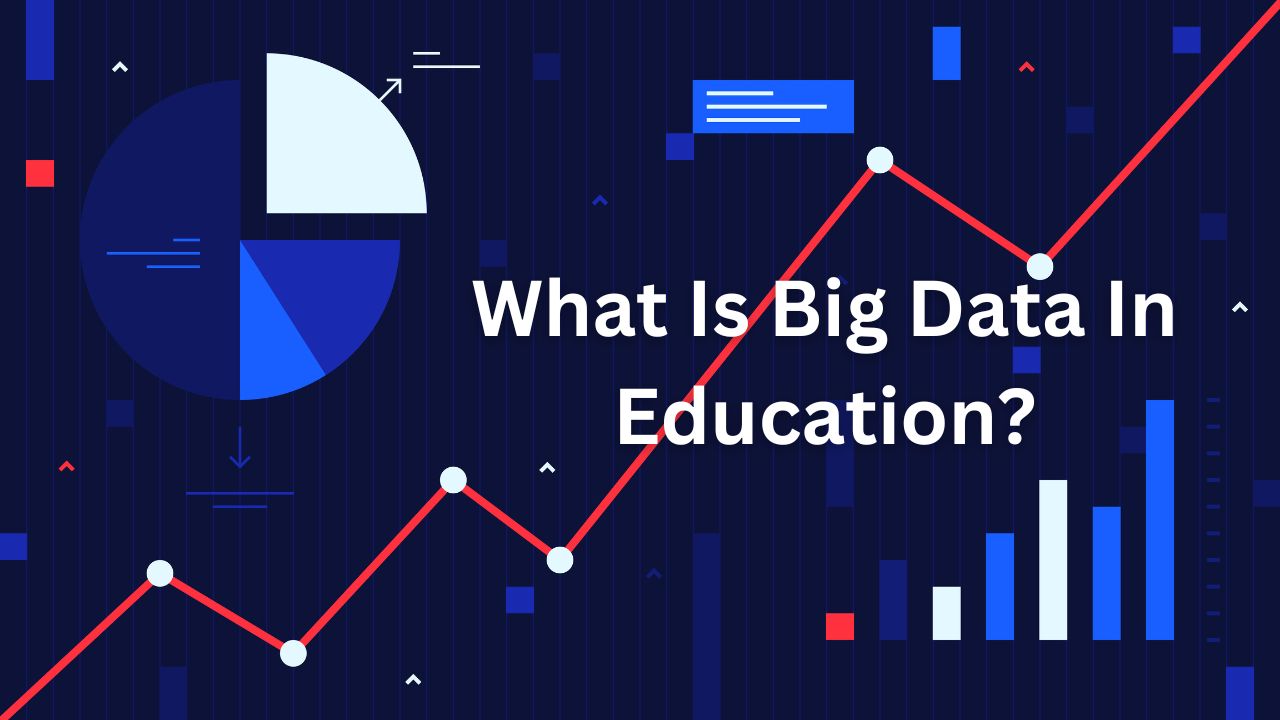In today’s digital era, educational institutions have access to an enormous amount of data generated through various sources, such as student information systems, learning management systems, online platforms, and educational applications.
This data, known as big data, holds tremendous potential to transform education and improve learning outcomes. In this article, we will explore the concept of big data in education, its applications, challenges, and future implications.
What is Big Data?
Big data refers to extremely large and complex datasets that cannot be effectively managed, analyzed, and processed using traditional data processing methods. It encompasses three key dimensions: volume, velocity, and variety.
Volume refers to the vast amount of data generated, velocity relates to the speed at which data is produced and needs to be processed, and variety signifies the diverse types and sources of data.
Characteristics of Big Data
Big data is characterized by its 4 V’s: volume, velocity, variety, and veracity. The volume of data is immense, often ranging in terabytes or petabytes. The velocity refers to the high speed at which data is generated, requiring real-time or near real-time analysis.
Variety implies that data can come in various forms, such as structured, unstructured, and semi-structured data. Lastly, veracity relates to the accuracy, reliability, and trustworthiness of the data.
Big Data in Education
- Transforming Traditional Education
Big data has the potential to revolutionize traditional education systems by providing insights into student behaviors, learning patterns, and academic performance. Educators can harness this information to personalize teaching approaches, identify areas of improvement, and design effective interventions.
- Enhancing Personalized Learning
With the help of big data analytics, educational institutions can create personalized learning experiences tailored to individual students’ needs and preferences. By analyzing students’ learning styles, progress, and challenges, adaptive learning systems can recommend suitable learning resources, adapt content difficulty, and provide timely feedback, ultimately fostering better engagement and improving learning outcomes.
- Improving Decision Making
Educational leaders and policymakers can utilize big data to make data-driven decisions. By analyzing data on student performance, attendance, and engagement, institutions can identify areas that require improvement, implement targeted interventions, and allocate resources more effectively. This data-driven decision-making approach can lead to more efficient educational systems and better support for students and teachers.
Applications of Big Data in Education
- Student Performance Analytics
Big data analytics allows educators to gain insights into students’ performance trends and patterns. By analyzing academic data, such as test scores, assignments, and grades, educators can identify struggling students, intervene early, and provide targeted support. This proactive approach helps prevent academic difficulties and promotes student success.
- Predictive Analytics for Student Success
Predictive analytics leverages historical data and machine learning algorithms to forecast student success and identify at-risk students. By analyzing various factors such as attendance, behavior, and demographic information, institutions can intervene before students face significant challenges and offer personalized support to improve retention rates and graduation outcomes.
- Adaptive Learning Systems
Adaptive learning systems utilize big data to create personalized learning paths for students. By continuously monitoring students’ progress, analyzing their responses, and adapting content and assessments accordingly, these systems provide tailored instruction, ensuring students receive the right level of challenge and support. Adaptive learning systems can enhance student engagement, knowledge retention, and overall academic performance.
- Education Research and Development
Big data plays a crucial role in education research and development. Researchers can analyze large datasets to gain insights into learning patterns, teaching effectiveness, and factors influencing student outcomes. This information can inform the design of evidence-based educational practices, curriculum development, and policy decisions, ultimately advancing the field of education.

Challenges and Concerns
While big data offers significant opportunities, it also presents challenges and concerns that need to be addressed.
- Data Privacy and Security
One of the primary concerns surrounding big data in education is data privacy and security. Educational institutions must ensure the responsible collection, storage, and usage of student data. Safeguarding sensitive information and complying with data protection regulations is essential to maintain trust and protect students’ privacy.
- Ethical Considerations
Ethical considerations arise when using big data in education. Institutions must use data in a manner that respects students’ autonomy, prevents discrimination, and maintains fairness. Striking a balance between data-driven decision-making and ethical practices is crucial to avoid unintended consequences and biases.
- Data Quality and Interpretation
Another challenge lies in the quality and interpretation of data. Educational data can be diverse, incomplete, or inconsistent. Ensuring data accuracy, completeness, and meaningful interpretation is essential to derive reliable insights and make informed decisions.
- Future Implications and Opportunities
The future of big data in education holds immense potential. As technology continues to advance, educational institutions can explore new avenues to leverage data, such as natural language processing, machine learning, and artificial intelligence. These developments can further enhance personalized learning, streamline administrative processes, and promote equitable access to education.
Conclusion
Big data is transforming education by empowering educators, administrators, and policymakers with valuable insights and tools to enhance teaching and learning processes.
By harnessing the power of big data analytics, educational institutions can improve student outcomes, optimize resource allocation, and create personalized learning experiences. However, it is crucial to address challenges related to data privacy, ethics, and data quality to ensure the responsible and effective use of big data in education.
